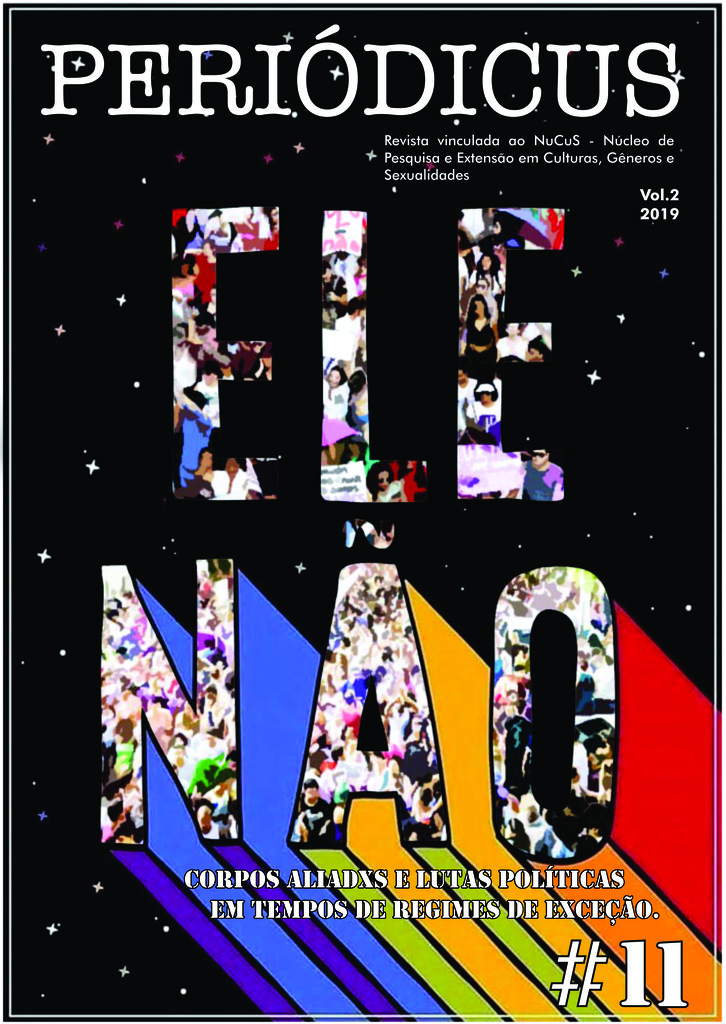“Agora eles foram longe demais”: as crianças, as famílias e as super-heroínas drag queens
DOI:
https://doi.org/10.9771/peri.v2i11.31464Abstract
Este estudo problematiza a animação brasileira “Super Drags”, original da plataforma Netflix, e a sua repercussão referente à preocupação de famílias e políticos quanto à classificação indicativa e ao conteúdo da referida produção, trazendo como super-heróis a presença de personagens homossexuais e drag queens. Com a análise dos cinco episódios que compõem a temporada da série e as notas de repúdio propagadas, percebemos a intencionalidade da produção destinada para o público adulto, mas suscitamos também debates acerca da responsabilidade familiar no acesso de crianças e adolescentes a conteúdos online e o temor em relação ao que o desenho animado provoca frente a sua representatividade LGBT no país que mais provoca a morte de lésbicas, gays, bissexuais, travestis e transexuais no mundo, com índices crescentes a cada ano. As análises aqui apresentadas se pautam nos Estudos de Gênero e nos Estudos Culturais, a partir da perspectiva pós-estruturalista.Downloads
Downloads
Published
How to Cite
Issue
Section
License
Copyright (c) 2019 Cristiano Eduardo da Rosa, Jane Felipe

This work is licensed under a Creative Commons Attribution-NonCommercial 4.0 International License.
Authors who publish in this journal agree to the following terms:
Authors retain copyright and grant the journal the right of first publication, with the work simultaneously licensed under a Creative Commons Attribution Noncommercial License that allows the work to be shared with acknowledgment of authorship and initial publication in this journal, but prohibits commercial use.
Authors are authorized to enter into separate additional contracts for non-exclusive distribution of the version of the work published in this journal (e.g., publishing in an institutional repository or as a book chapter), with acknowledgment of authorship and initial publication in this journal.
Authors are permitted and encouraged to publish and distribute their work online (e.g., in institutional repositories or on their personal website) at any point before or during the editorial process, as this can generate productive changes and increase the impact and citation of the published work (see The Effect of Open Access).








